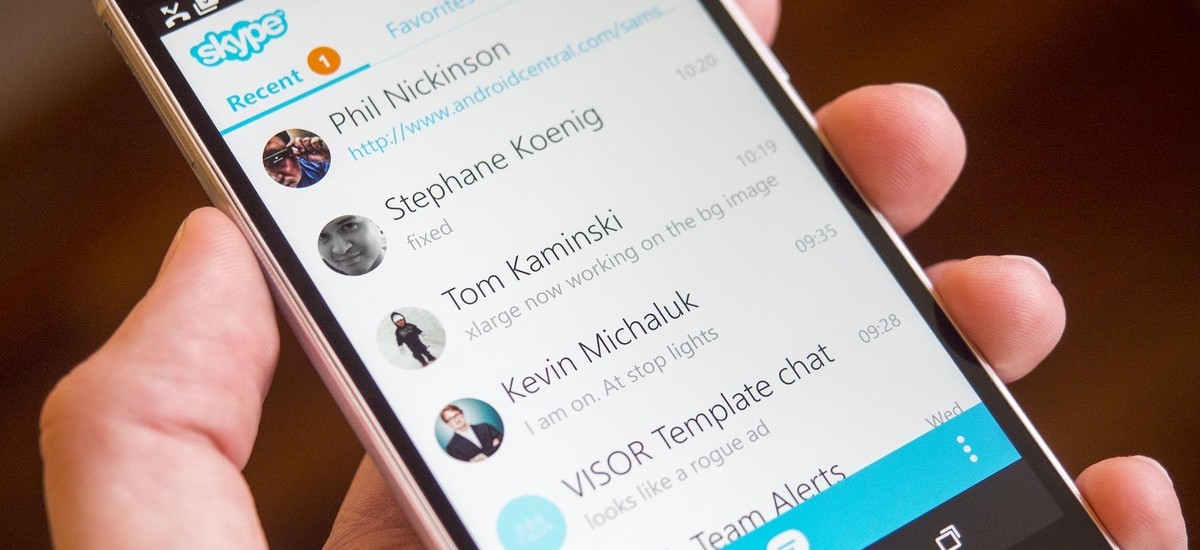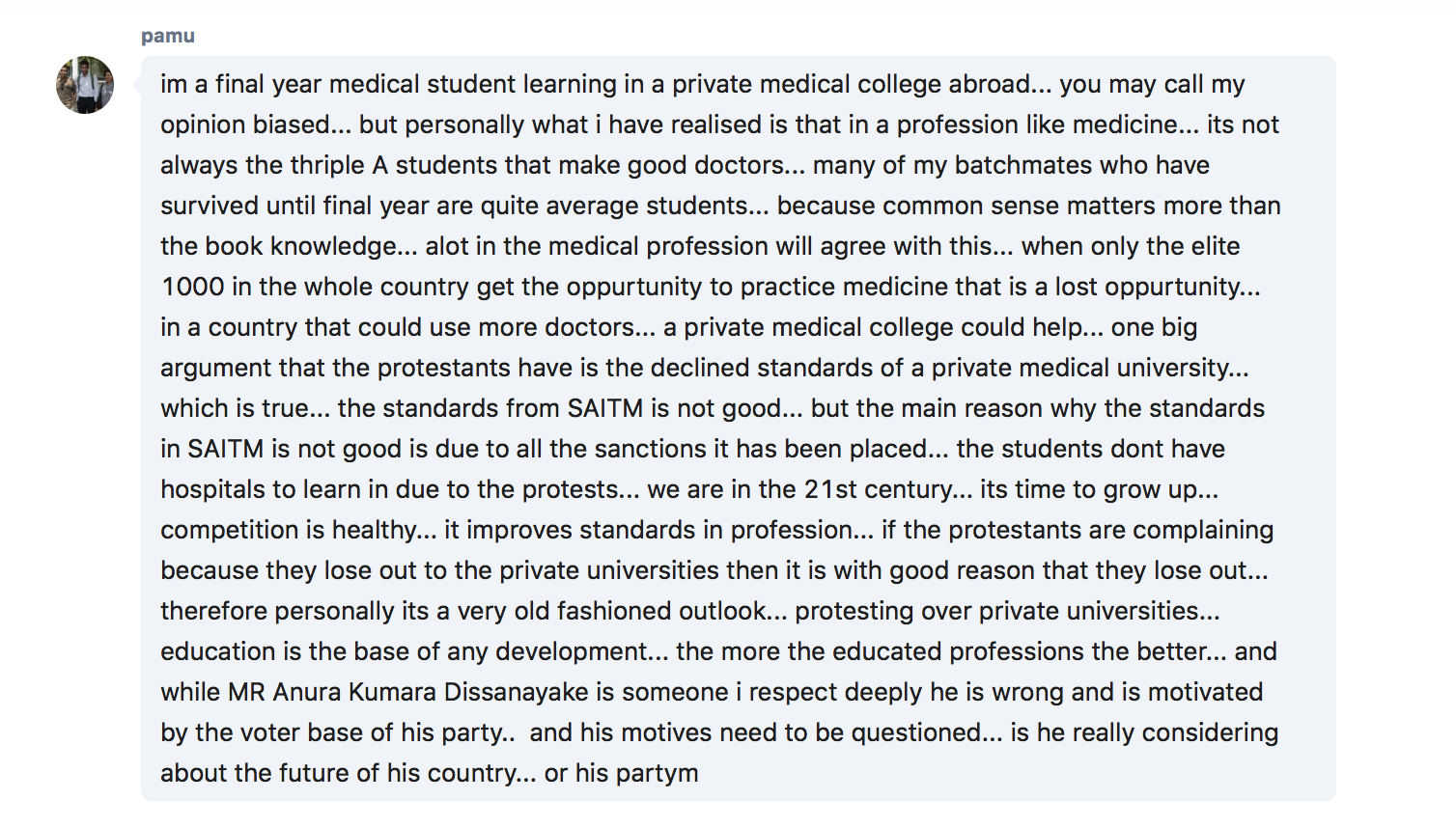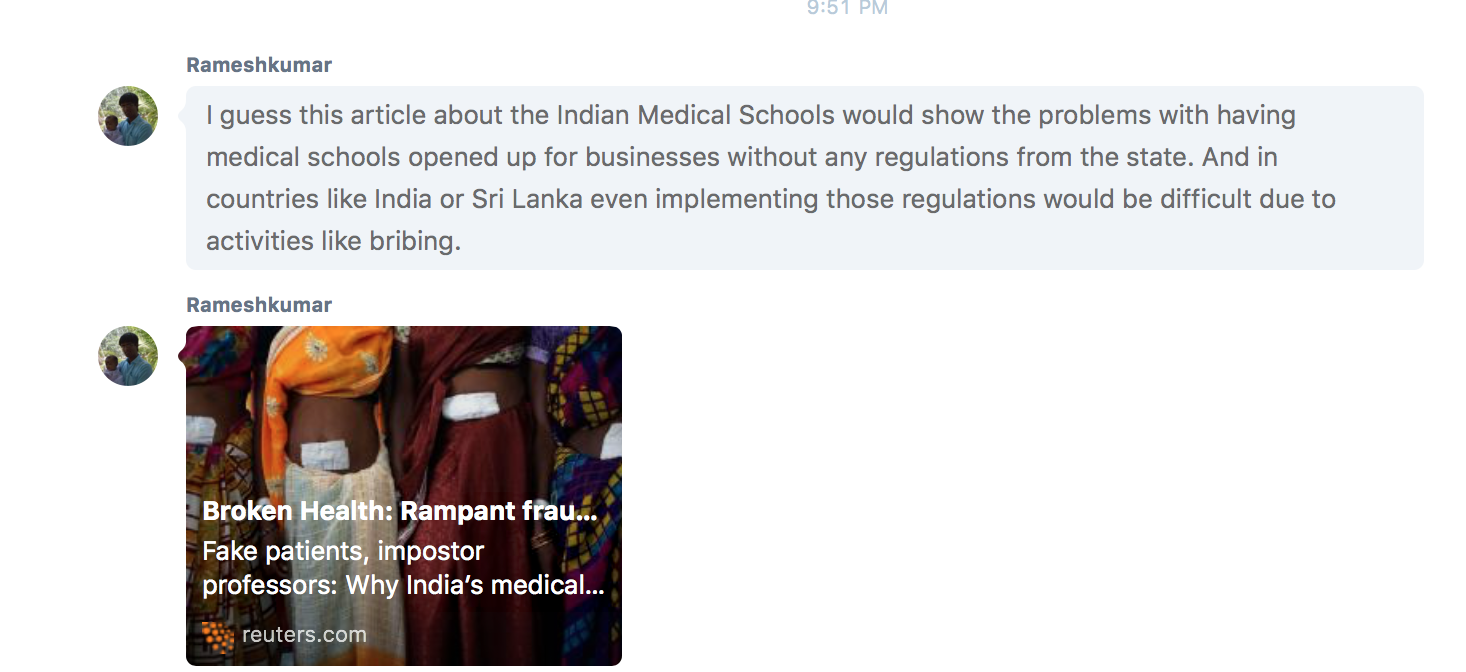Picture courtesy androidcentral
Recently, Skype launched its new public group chat tool, which allowed even those who weren’t registered Skype users to chat with others, and for free. Around the same time, a protest held by Higher National Diploma students for accountancy was violently disrupted by police (read In the Name of Assaulted HND Students by Kusal Perera), with the latter using tear gas and batons to subdue students.
In light of the violent clampdown, and the issues that governed the protest, Groundviews attempted to use the Skype public chat tool in an attempt to encourage public discourse on the issue.
After framing the discussion on social media, Groundviews invited people to join the chat. Some useful and insightful comments were shared, particularly on the debate as to whether private universities should be given space to open in Sri Lanka, which has perennially been the core of many state university student protester’s complaints.
Private medical student Pamu, who is studying overseas posted this comment:
Well known blogger Yudhanjaya Wijeratne meanwhile also spoke in favour of private universities providing healthy competition.
“Realistically, you cannot provide everyone with free education unless you have very high taxes like Sweden does,” he said.
“Nobody here wants to pay that much tax. So until we actually have that kind of money AND uni capacity, the majority of A/L students are not going to get into public uni. Their only option is private. What the state sector seems to want is a monopoly on education. That’s just wrong.”
Yudhanjaya went on to add that it was a case of ‘the boy crying wolf’ with legitimate issues getting lost as ‘people protest for practically everything.’
‘User B’ on the other hand sympathized with the protesters:
Others sympathised with the student’s cause but were more irate that they were causing disruption to daily life. Balachandran, for instance, said
“I totally agree with point that it is their right to fight, but not at the expense of others. They could have had a peaceful protest without blocking the main roads in Colombo. They could have used the pavements to stand and shout not in the middle of the road. My right to stretch my hands ends at the point of the other person’s nose.”
Some also shared useful case studies, such as Rameshkumar who spoke about India’s problems in regulating private medical colleges, drawing parallels with Sri Lanka’s SAITM. Harmut Winkels meanwhile spoke about Chile and the many student protests there demanding for free education.
User Shermal suggested getting a ruling from Supreme Court on the issue, and ‘User B’ rebutted saying that the students’ causes were not being taken up by mainstream media:
“Shermal, how can the people be ‘made aware’ when the mainstream media (that reaches the majority) is opposed to the demands of those affected. Media awareness is also only raised when the affected take to the streets. Have we seen mainstream media (or social media for that matter) initiating any discussion on the plight of the affected? … So, what other option for the affected to grab the attention of the media and the public than civil disobedience?”
Not entirely unexpectedly, the conversation was after a few days derailed by spam and trolls using pseudonymous accounts who collectively brought the discourse to a standstill.
The Skype conversation was set up as an experiment to see to what degree and for how long an open, un-moderated conversation could take place on a contentious issue. The answer, as we discovered, was not very long. The impact of trolls is significant – the inclusion of expletives, pornographic links and inflammatory content serves to jar the existing community and repel new voices from joining in. Although measures were taken to rid the conversation of trolls once Groundviews was alerted to the fact they had entered the forum, the damage was done.
Skype’s public conversations don’t allow moderators to delete comments, and there are at present no easy tools to block trolls and spambots. Since it was important for new members joining in the public chat to see what was discussed and debated earlier, chat history was enabled. This also played into the hands of the trolls, since their content – during the short period they were active – overwhelmed the content posted on the chat earlier. Especially on the mobile versions of Skype (using the app), the content generated by the trolls took a while to scroll through and posed a massive deterrent to existing and new entrants to the conversation from engaging further.
While the promise of technology let us down in this instance, the Skype chat was nevertheless an interesting experiment in generating discussion around the issue of tertiary education and Police violence, with several people trading insightful views in a respectful manner before the chat was disrupted. Groundviews will continue to pursue ways through which more broader social discussion can occur in response to socio-political issues we think merit enduring scrutiny, and indeed, meaningful redress.





